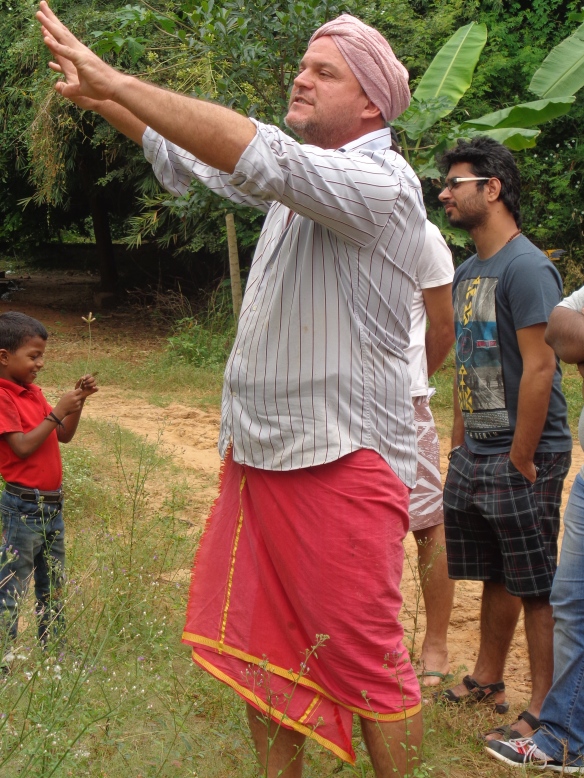After two weeks of visits to social enterprises and organisations in and around Auroville, I feel a lot closer to understanding what management models may effect sustainable social change. Though each one was unique in its operations and services, the recurring learning is that:
Effective change takes time. Deepti shared with us how the Auroville we see today is nothing like it was 45 years ago when the first settlements began. The transformation of a barren near-desert into the verdant and productive village we walk today took years of experiments and passionate effort from peoples of over 50 nations. The change was not immediate and yet you get the sense that it started with the first step towards achieving the vision for Auroville and it is still in process. This same energy that builds on small steps is evident in the other organisations.
The first time the Auroville Village Action Group (AVAG) offered loans to its self-help groups, only one group came forward and to take only 500 rupees (€6.50). Anbu, who manages the organisation, recalls the experience with a laugh but at the time it was disheartening. However they persisted with the community, assuring them that the loans would free them from exorbitant money lenders and offering other services for personal and social development. Years later, they are now lending out hundreds of thousands of rupees to over 800 self-help groups.
The other key learning reminds me of an over-used African proverb that says it takes a whole village to raise a child. Watching the Auroville entrepreneurial and social support networks, there is every indication that in turn, it takes every child to change a village. The interconnectedness between the organisations, and how they complement each other’s services to serve the community, is outstanding.
The Auroville Botanical Garden does landscaping work for individuals and organisations in the community and supplies seedlings and seeds to farmers. Solitude Farm gives free meals to children in one school twice a week. Some of the self-help groups of AVAG work at the Bamboo Centre, making bamboo crafts and jewellery. The men’s self-help groups make blocks at the Earth Institute, which supplies building materials for most of the construction in Auroville. Mason & Co (Craftsmen of Chocolate) is consulting with Wasteless to help them design a transportation device with a cooling system. Wasteless in turn consults with Unltd Tamil Nadu that provides business development and mentorship services to the social enterprises.
There is no perceptible competition between organisations; each one stems from the passion of an individual to meet a need. And it would seem like once that need is met, there is no need to duplicate that service, instead another organisation forms to meet a different need. A guest I spoke to, who is exploring the possibility of settling in Auroville has already identified the need she would meet if she chose to stay; that of stray, neglected dogs that roam the village.
In contrast, none of the organisations outside of Auroville boasted of cooperation with another NGO. Each one is working in seclusion from the others and yet trying to effect change in the same community.
There sure is a lesson to be drawn from the Aurovillian organisations and I wonder if this model to social change can be replicated and scaled up from a commune like Auroville, to a nation or at least a larger community.
— P.Otali

